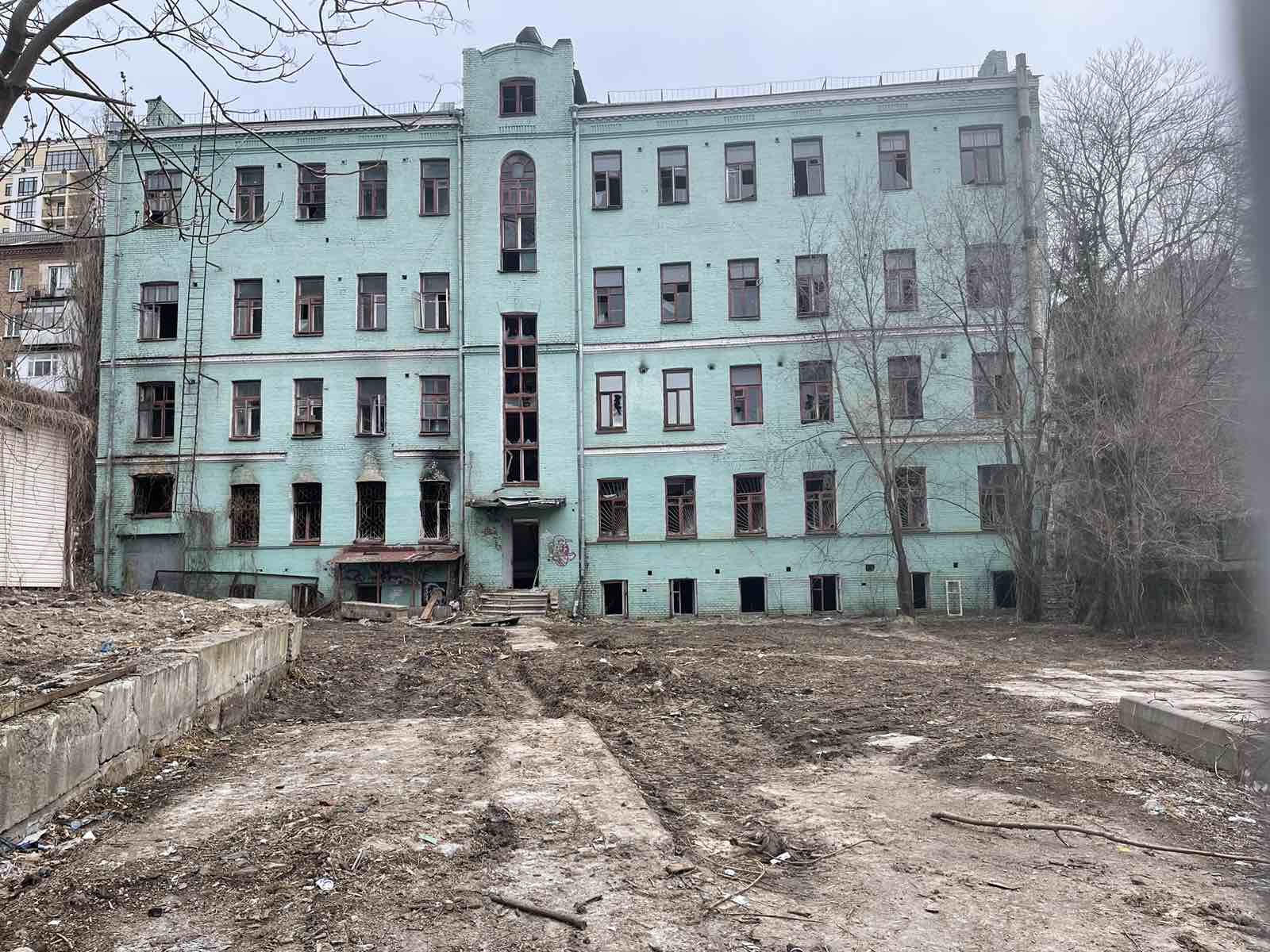The Kyiv City Council is handing out building permits for historical sites "in bulk"
The city authorities continue to disregard not only the requests of Kyiv residents to preserve the cultural heritage of the city but also their own earlier decisions regarding this issue.
A striking example of this was the recent session of the Kyiv City Council, where land plots with historical monuments were handed over to developers.
In one fell swoop — three plots
Specifically, at the behest of the Kyiv City Council deputies, a plot with the estate of Olena Oleцьka on Hoholivska Street, 7g, was allocated for development. Interestingly, between the last two sessions of the Kyiv City Council, where the fate of this estate was to be discussed, two "sudden" fires occurred on its territory. The first was on November 11, and the second on November 15.

“And so on November 21, at the session, the deputies of the Kyiv City Council concluded that the building is a historical monument, located in the city center, owned by ‘Stroitel-P’ from the city of Dnipro, it has burned twice, so such a ‘responsible’ owner should also be granted a land plot for residential public development,” said heritage protector Dmytro Perov.
According to him, along with Oleцьka's estate, two other architectural monuments of Kyiv were included in the list. In particular, development was legitimized on two plots in the protected zone of the "Flying Saucer" building of Florіan Yuriev, near the "Lybidska" metro station, and the estate of the Logvynov family was handed over for residential development to TOV "Tower Group" of Vadym Stolar.
“Countless” voices
Overall, recently (probably after the destruction of the Zelensky estate in July), it has become fashionable among Kyiv officials to loudly proclaim that the cultural heritage of the city needs to be preserved, and that next year a record 1.1 billion hryvnias has been allocated in the budget for these activities, the largest amount in the last 30 years. In reality, we see something entirely different.
“Apparently, the Kyiv authorities lack any political will or interest in preserving the old city,” cautiously concludes Perov.
 0
0 At the same time, he points out an interesting fact that eloquently demonstrates the real attitude of the city authorities towards architectural monuments: the last session of the Kyiv City Council was opened by the mayor Vitaliy Klitschko. To be fair, he left the session hall quite quickly. Was it because the session was set to vote on “inconvenient” land plots? After all, to think that the mayor was unaware of the agenda is simply naive.
“Whether from his (Klitschko's) secret active position, or by silent consent (as one prefers), three more historical buildings were handed over for development,” stated Dmytro Perov.
Methods of erasing antiquity
Thus, the public activist concluded, for Kyiv residents, loud political statements are proclaimed, vast budgetary funds are supposedly allocated for the preservation of the capital's antiquities, yet there are no real actions. Rather, such acts are transformed into completely opposite actions that are not connected to the preservation of the city's history. Among other options are blocking or refusing to issue preservation certificates for certain buildings, particularly in cases where the initiative (permitted by law) comes from concerned activists or civic organizations.
 1
1 “We now have a clearly defined political stance on transferring historical buildings for development. After all, we see that new and new objects for development are being added to the agenda of the Kyiv City Council sessions. Meanwhile, the relevant Department for the Protection of Cultural Heritage takes a completely opposite stance that is not at all related to the protection of historical monuments,” noted Dmytro Perov.
Can we "reverse" this?
It is unfortunate that those who should stand in defense of the city's history are starting to play offensively. Certainly, some Kyiv City Council decisions regarding land allocation for historical sites are not final — they can be influenced, so to speak, reversed. But there is one significant caveat...
“Decisions can certainly be ‘reversed’. However, it is an expensive and lengthy process,” explains the interlocutor.
According to Perov, the problem lies in the fact that activists have quite limited life and financial resources to combat the arbitrariness of officials and deputies. The latter almost every session adopt “scandalous” decisions that harm the protection of cultural heritage, natural zones, and water bodies.
“It turns out that while we are challenging one decision of the Kyiv City Council in court, several new, even ‘better’ ones are being adopted at a new session that also need to be contested,” says Perov.
Law enforcement is on the sidelines
If activists cannot prevent arbitrariness, then those with the appropriate state powers — law enforcement — should take charge. However, even here, things are not so straightforward.
There are many cases, Dmytro Perov points out, in both the city prosecutor's office and the Office of the Prosecutor General that were opened, particularly at the requests of activists.
 2
2 “However, when we submit inquiries about the results of investigations into these cases, the accountability of certain individuals, motions to carry out certain procedural actions, and the deprivation of ownership rights to monuments that are being destroyed, we each time receive ordinary, worthless, formal, and meaningless replies,” complains the heritage protector.
“There are more than fifty cases regarding the protection of cultural heritage in the city prosecutor's office. However, none of them has a logical outcome — there are no indictments, no court rulings, no return of monuments to municipal ownership. I understand that each case has its investigation period, and in most of them, it is already ending with all positive results for their parties,” summarizes Perov and adds: “Thus, impunity breeds new unlawful acts, new crimes.”
Yevhen DEM’YANOV